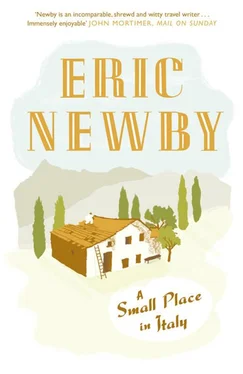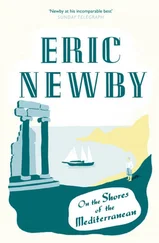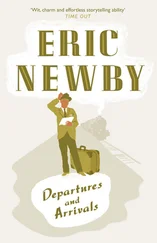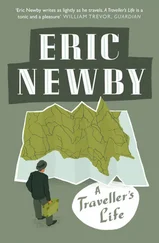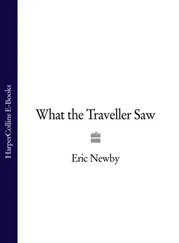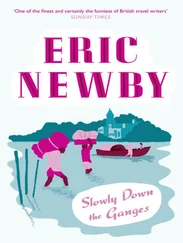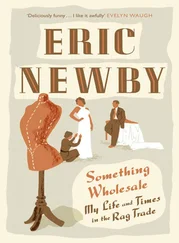Then suddenly, the wind dies and the rain ceases. The silence by contrast is enormous. Look now into the heart of the fire where slipping logs have formed strange caverns. Will I then remember the life in the prison camps: the damp blue fog that hung about those now far-off barrack rooms in which we seemed entombed, far into the day; the sudden, senseless arguments in which we all participated; the air-raid sirens wailing day after day, night after night; the bombs from the Fortresses, the Lancasters, the Wellingtons and the Mosquitoes streaming earthwards in their thousands to where we crouched, hemmed in by the all-embracing wire which allowed no escape; the long evenings when, from seven o’clock onwards, we sat around a flickering margarine lamp. Shall I remember these things?
I can remember them, all these things. That is if I want to. But I prefer to think of the friends I made, both British and Italian, their courage in adversity, and I thank God that we were not prisoners of the Japanese.
For the memory is selective and it is easier to remember what one wants to remember, so if I have to choose between the splendours and miseries, I will choose the moments of happiness in spite of the fact that there are few situations in which men and women are completely happy and completely free.
We both of us dreamt of buying a small house in Italy, one in which we might be able to re-create the happiness we both remembered; but it was not until more than twenty years after the war ended that we found ourselves in a position to realize this ambition.
What follows is the story of how we finally succeeded in doing so, and of the whole new world of friends and acquaintances we found on the way.
In the autumn of 1967 I went to Africa to visit the game reserves, then the latest craze, and write about lions who took siestas in trees, and other wonders, as Travel Editor of the Observer .
While I was there Wanda sent me an express letter from Italy which somehow contrived to arrive in a couple of weeks when a month was around par for a letter from there whether it was sent express or not.
In it my Slovenian, who likes to keep things stirred and on the boil, wrote that what she had feared was now beginning to come to pass. The prices for houses anywhere near the sea in northern Italy were beginning to go up and it would only be a short time before houses in the depth of the countryside would follow suit. ‘Unless we do something quickly we shan’t be able to buy anything at all,’ she concluded on an appropriately pessimistic Slavonic note.
Spurred into action by this cri I flew from Africa to Italy instead of back to London and eventually came to a halt in a place called Tellaro, where Wanda was staying in a tower, originally built as a lookout against roving Saracenic pirates who used to come ashore on these Mediterranean coasts in search of livestock for the north African harems.
This tower was the property of Wanda’s friend, Valeria, with whom she had worked in 1943. Tellaro is near Lerici on the shores of the Ligurian Sea, at the mouth of the Gulf of Spezia, where Byron went for a six-mile swim. At that time (in 1967) it was still a fishing village, an almost unbelievably picturesque one, that looked as if it had been designed by Rex Whistler, and it was still inhabited by fishermen sufficiently genuine to roll out of bed every morning at 4 a.m., except Sundays, or even earlier, and put to sea, making a hideous din.
In summer a cool breeze blew up from the sea through Tellaro’s dark and cavernous streets, filling the gleaming white bed sheets that were drying on the lines stretched high overhead between the opposing houses as if they were spinnakers that were drawing nicely. But not always. When the scirocco , a nasty wind from Africa, blew, bringing torrential rain, thunder and lightning along with it, what had been magical, mysterious caverns became deep, dank ditches full of water, then Tellaro was not so allegro.
For Tellaro and a number of similar places on the shores of the Mediterranean, that autumn was the beginning of what was soon to be a period of extraordinarily rapid change and transition.
One moment Tellaro was a fishing village with a few artists hidden away in it; the next it had been ‘discovered’ by senior people in Fiat and Olivetti and suchlike organizations, who saw it as an ideal place in which to immure their wives and families during the long Italian summer, less boring than Forte dei Marmi. A place to which they could drive down from Turin or Ivrea, or wherever it was, on Friday evenings in a couple of hours or so, driving back on Sunday nights to the embraces of those of their mistresses who could stand August in such places as Turin or Ivrea, or wherever it was they were returning to.
Within a year or two smart little fish restaurants would be springing up around Tellaro’s minute piazza, opened by locals who soon became ‘characters’, the sort who treat their clientele with carefully cultivated insolence, a sort of treatment the rich and powerful, rather surprisingly, seem to enjoy, turning them into suppliants.
And in a couple of years or so most of them would have either grown rich by selling their houses or plots of land, or else, more modestly contented, would be doing well working in the bars and restaurants, and in the souvenir and picture postcard shops.
A member of one of these local families, by this time very elderly, whom we happened to meet, was a still sprightly lady who had known D.H. Lawrence and Frieda von Richthofen. They had come to live in Italy in September 1913, returning in July 1914 to England, where they were married. In Italy they rented a house in a small seaside hamlet between Tellaro and Lerici called Fiascherino. Every day this signora , then a young signorina , used to walk along the coast path through the olive groves to Fiascherino, where she used to do the Lawrences’ housework and sometimes the cooking.
‘I called him Signor Lawrence,’ she said, the ‘ce’ as a soft ‘che’. ‘He was very thin and he had a beard. He looked as I imagined Gesù would look. And he enjoyed the wine.’
‘Signor Lawrence,’ the Signora said, ‘had a wife. She was a German, a nobildonna. She was simpatica. Then, suddenly,’ she said, ‘they went away. We didn’t know where.
‘One of the things they left behind them was a big trunk full of papers and a key to it. They never came back for it. There was no money in it, only papers.
‘Then, one day, I can’t remember when exactly, a signore , a foreigner, I think he was an American, came to our house, I was married then, and said that he was a friend of Lawrence and that he had been given permission to take some papers from the trunk, so I let him do so.
‘Then, one day, many years later, another signore appeared, also a foreigner. He said that Lawrence was dead and he, too, took papers from the trunk, all that remained.
‘You may think I was stupid to let them have these papers,’ she said, ‘but they were all written in English or German and there was no one at that time in Tellaro who could understand them. The words were difficult words.’
The Signora lived in La Canonica, The Presbytery, a fine old house in Tellaro, in an apartment on an upper floor. She wanted us to buy it because, she said, she liked us; but for us it was too high up and too dark. Also it had no garden, not even a balcony or a terrace to sit out on. So we didn’t buy it. But when we told her that we couldn’t buy it she cried a little and then gave us as a parting gift two silver spoons with the arms of the von Richthofen family engraved on them.
Inspired by all this we began to look for our house as soon as I arrived from Africa. It soon became obvious that it was not going to be easy. What had up to then looked like desirable properties immediately ceased to do so when we began to look at them more closely.
Читать дальше
